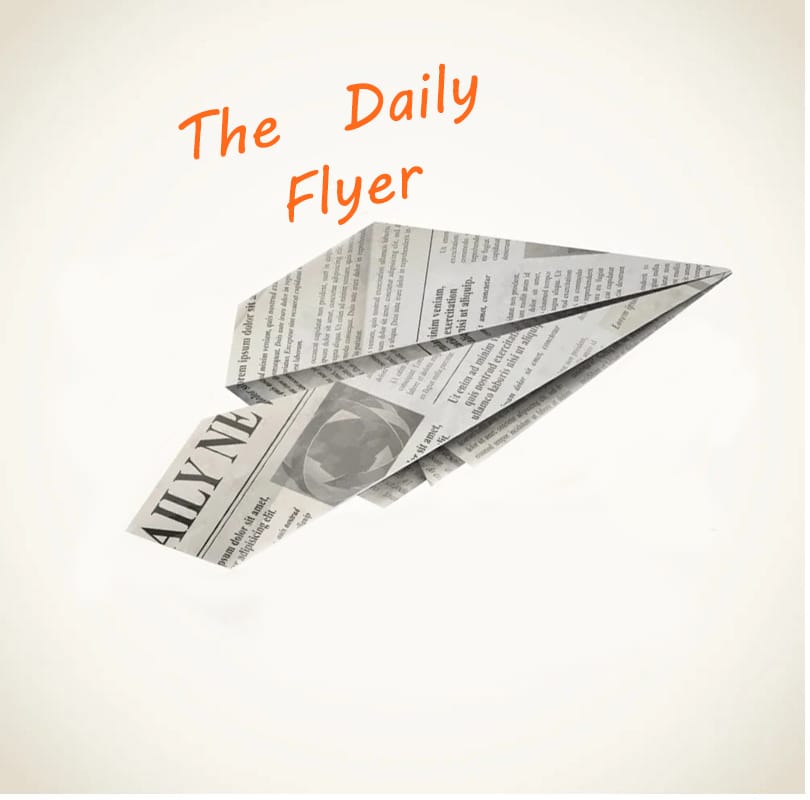Daily Flyer - October 25, 2024
A voice of Ukraine to the West

Russia is not planning any concessions, according to Putin`s statment on peace talks with Ukraine
Russian President Vladimir Putin stated on Oct. 25 that any peace agreement to end the war with Ukraine must be in Russia’s favor, emphasizing that Moscow will not make concessions or engage in compromises. Speaking to state media, Putin said the outcome must reflect "the realities on the battlefield" and rejected the idea of any territorial "swaps."
Putin had previously outlined conditions for negotiations, which included Ukraine ceding four oblasts illegally annexed by Russia in September 2022. Russia has also refused to negotiate as long as Ukrainian forces remain in Kursk Oblast.
Peace talks between Ukraine and Russia began in March 2022 in Istanbul but collapsed after Ukraine regained territory and exposed Russian war crimes. President Volodymyr Zelensky blamed the failure of those talks on Russia’s ultimatums.
Moscow was excluded from Ukraine's Peace Summit in June 2023, attended by over 90 countries. Following the summit, Zelensky expressed hope for future discussions that could include Russia, but Moscow dismissed the process as irrelevant and declared it would not participate in future peace talks hosted in Switzerland, calling the effort a "fraud."
Russia to deploy North Korean troops to combat zone on Oct. 27-28
Russia is planning to deploy the first North Korean soldiers to a combat zone in Ukraine on Oct. 27-28, according to Ukrainian President Volodymyr Zelensky, citing intelligence reports on Oct. 25.
Zelensky described this as an "obvious step toward escalation" and urged a strong response from global leaders, calling for "tangible pressure" on Moscow and Pyongyang to comply with international law.
Ukraine's military intelligence (HUR) reported that North Korea has sent nearly 12,000 troops to Russia, including 500 officers and three generals. The first group of North Korean soldiers is reportedly being deployed to Russia's Kursk Oblast, where Ukraine holds significant territory following a cross-border incursion in August.
Zelensky noted that Ukraine had established a buffer zone in Kursk Oblast to prevent Russia from expanding the conflict further into eastern Ukraine.
While U.S. officials have acknowledged North Korean troop movements into Russia, U.S. Defense Secretary Lloyd Austin said the extent of their involvement remains unclear. In exchange for military support, Russia is reportedly helping North Korea evade sanctions and advance its nuclear program, according to HUR chief Kyrylo Budanov.
Poland declines Ukraine's request for weapons purchased by Warsaw from South Korea
Polish President Andrzej Duda has firmly ruled out the possibility of transferring weapons purchased from South Korea to Ukraine. Responding to suggestions that Poland could supply Ukraine with arms it recently acquired from Seoul, Duda emphasized that these weapons are for Poland's defense and security and will not be given away.
“There is no scenario in which we give someone the weapons we have recently bought for billions of zlotys from the pockets of our taxpayers,” Duda stated.
Ukraine had reportedly asked Poland to consider transferring South Korean weapons to Kyiv, but the request was denied. While South Korean President Yoon Suk Yeol has hinted that South Korea might reconsider its ban on supplying lethal weapons to Ukraine in light of North Korea's involvement in Russia’s war, Duda made it clear that any potential transfers would not come from Poland’s stockpiles.
This stance underscores Poland's commitment to maintaining its own defense capabilities amid the ongoing war in Ukraine.
Scholz rejects first point of Zelenskyy's Victory Plan
German Chancellor Olaf Scholz has rejected the idea of inviting Ukraine to join NATO, a key point in President Volodymyr Zelenskyy's Victory Plan. Scholz reaffirmed NATO’s stance on Ukraine's membership, citing decisions made at the Vilnius and Washington summits. He stressed that no new decisions on Ukraine's membership are necessary at this time.
Scholz pointed out that "a country at war cannot become a NATO member," a position that he said is universally accepted within the alliance. He added that NATO invitations are typically linked to quick membership, which is not feasible under current conditions.
The Chancellor emphasized the need for balanced actions in response to Russia’s full-scale invasion of Ukraine, ensuring strong support for Kyiv without escalating the conflict into a direct war between Russia and NATO. "This is where I am very clear on my position, and I will not change it," Scholz stated.

